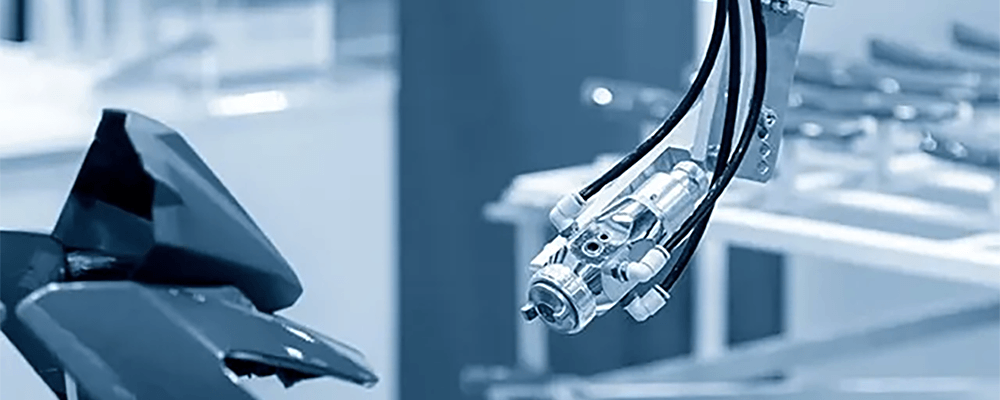How Artificial Intelligence is Changing the Aerospace Manufacturing Industry
Companies who manufacture aerospace parts for the aviation industry are always scrambling for ways to develop new manufacturing processes to provide better quality precision products and more cost-effective solutions for their clients, all while meeting the high demands and expectations characteristic of the aerospace industry.

With advancements in technology and new developments in manufacturing, aerospace parts and manufacturing companies are quick to pick up on new trends that will cut manufacturing costs and boost their offerings in the market. The use of artificial intelligence (AI) is possibly one of the most significant ones in recent years.
AI has plunged into the aerospace manufacturing field with a
predicted market value of $5.82 billion by 2028 according to Allied Market Research. What is driving this sudden demand, and why should aviation professionals pay attention to its ability to improve manufacturing cost and quality?
The Rise of Industry 4.0
Industry 4.0 is leading the transformation in AI-led manufacturing. While Industry 3.0 pioneered automated machines, Industry 4.0 takes automation to the next level through sophisticated artificial intelligence and machine learning platforms.
In Industry 4.0, the entire manufacturing process leverages cutting-edge IoT technologies to better track, measure, and optimize performance through all stages of the manufacturing process.
It also allows for personalization and customization of products, closed-loop data models and control systems, and emphasizes a general shift to a more data-rich manufacturing environment that’s heavily focused on continuous improvement.
What Place Does Artificial Intelligence Have in Aerospace Parts Manufacturing?
Aerospace product development involves multiple steps that can benefit from streamlining by AI solutions, such as:
- Budgeting
- Project planning
- Design
- Prototypes
- Manufacturing
Among the essential steps is the
precise CNC machining of aerospace parts. Plane components need to be durable enough to withstand operating pressures while lightweight enough for fuel-efficient flying.
Generative Design
Today’s aerospace engineers and designers use AI in manufacturing along with generative design principles to create their components. That is, they specify certain constraints and allow the AI to generate a few design candidates. These results are tuned up over time to achieve a final product.
Artificial intelligence and machine learning techniques learn from the requirements set by the designers to create these more efficient parts quickly.
CNC Machining
When it comes to CNC machining aerospace parts, companies in the sector are finding ways to integrate machine learning into the production line. The advantages of doing so include:
- Gaining accurate production metrics to make better decisions later
- Achieving production goals more readily
- Improving consistency in the final products
For instance, machines on the factory floor have AI-enabled sensors that are used to
improve the precision of cutting tools. While the use of general sensors is not new in advanced machining services, companies are just now empowering them with data analysis and autonomous systems with decision-making capabilities.
CNC machining in general is immensely important in the aerospace industry, and it empowers the production of components for anything from commercial aviation to international space travel.
Quality Control
Defects just happen sometimes, and it’s up to the quality control (QC) team to prevent defective components from being shipped to the aerospace companies.
Smart manufacturing companies are using artificial intelligence to improve quality control, and increase the rate of detection. For example AI-enabled software helps aerospace parts manufacturers enhance QC effectiveness while cutting down on manufacturing costs.
How AI Contributes To Aerospace Outside of Manufacturing
Machine learning technology has a variety of applications in aerospace beyond just component manufacturing.
- Fuel efficiency: Even a seemingly nominal change in fuel efficiency can have a significant impact on a company’s bottom line, especially as most flights today expend a large amount of fuel daily. By empowering fuel efficiency systems with artificial intelligence, a company can reduce fuel expenditure by tweaking flight patterns and practices, such as climb profiles.
- Proactive maintenance: Allowing aircrafts to continue flying safely requires regular checkups and servicing. However, having to put money into unforeseen problems found at random can be an issue for both the budget and for long-term planning. AI enables aerospace businesses to follow predictive maintenance by tracking possible faults and forecast repair times early on.
- Customer service: Just like with any other market, artificial intelligence will play a critical role in improving the customer experience in the airline industry. Examples here include automated chatbots for solid support at any time of the day as well as personalized suggestions to increase conversion rates.
- Employee training: Finally, pilot training facilities are slowly adopting AI-enabled virtual reality simulators to help with instruction. AI can even collect and analyze data to improve future sessions.
AI and machine learning improve aerospace safety and reduce manufacturing costs in ways beyond just the manufacturing of supplier components.
Discover the Aerospace Manufacturing Capabilities of GN Corporations
The industrial revolution 4.0 has seen the increase of AI in the manufacturing industry, resulting in a paradigm shift as aerospace industry suppliers are now able to manufacture higher quality aerospace parts and components thanks to artificial intelligence and machine learning.
The industry also benefits from machine learning being applied to other aspects of aerospace workflows, such as customer service, predictive maintenance, and employee training.
Are you excited about the digital transformation and the potential for artificial intelligence and machine learning in the aerospace industry? Learn more about the
advanced machining capabilities and manufacturing from one of the top certified suppliers of high-end components.
We have invested in advanced technologies to deliver high-quality parts at competitive costs, ensuring that a partnership with us is one of the strongest weapons to have in such a competitive market.
Contact us today to start taking advantage of data-driven manufacturing optimization.






